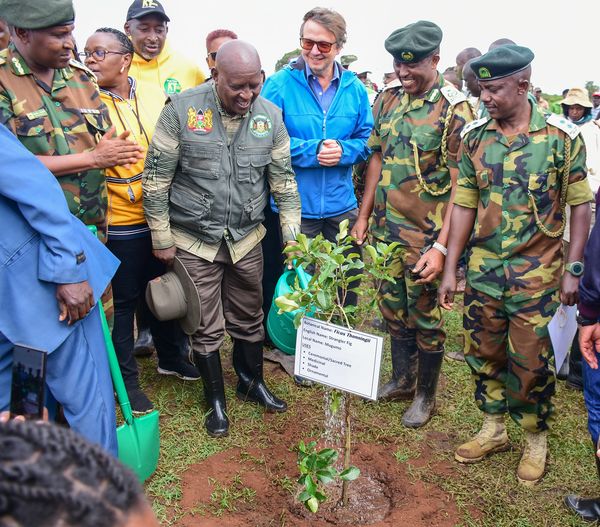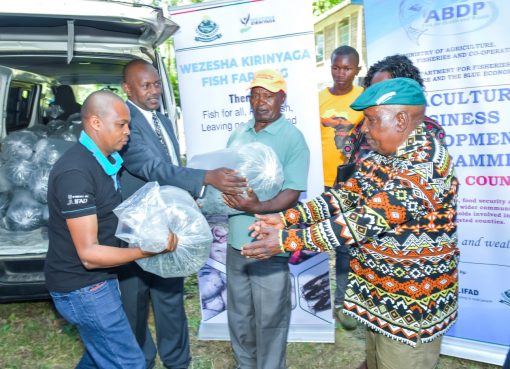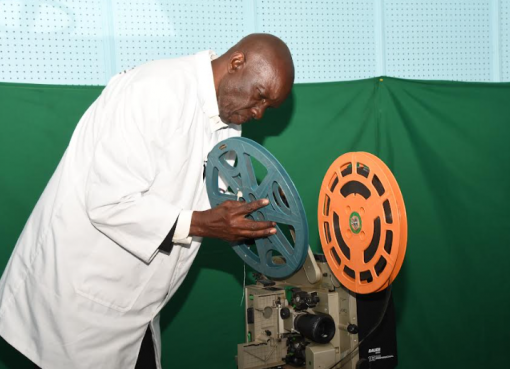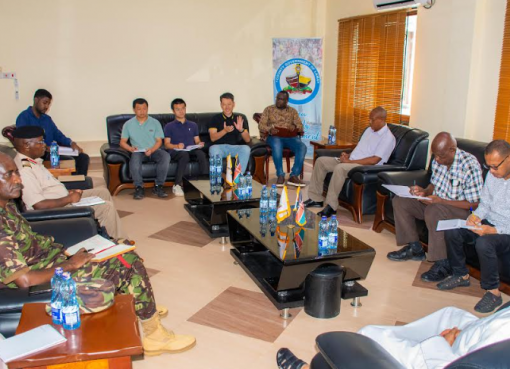Poor countries need to come up with locally bred policies to help absorb funds earmarked for addressing the effects of Climate change, Nyeri Governor Mutahi Kahiga has suggested.
The sentiments come barely two months after leading global polluters led by the EU, Britain, and the US pledged around $400 million as reparation for poor countries currently reeling from the impacts of climate change during the COP 28 meeting in Dubai last year.
The promise was hailed as one of the biggest wins for impoverished states (the majority in Africa) that have continued to bear the brunt of deteriorating climatic conditions blamed on excessive carbon emission from industrialized nations.
Africa contributes less than 2 percent of the entire global greenhouse gases but ironically is on the receiving end of worsening climate conditions than any other continent.
Now Kahiga says there is a need to formulate a different model of using money meant for climate mitigation where beneficiaries are allowed to employ the funds in accordance to their geographical locations and immediate needs.
He has also faulted the Financing Locally-Led Climate Action (FLLoCA) program which he argues restricts how money sent to counties for addressing climate change mitigation measures should be used and end up being spent on less urgent programs such as capacity building.
“When we look at the kind of financing that is coming through Financing Locally-Led Climate Action for example, every county received Sh11 million. I am sad to tell you that instead of the money being spent on buying seedlings for planting it went into capacity building. You need to tell me why we need Sh11 million to capacity-build the people of Nyeri who are leading in this county in terms of forest cover. We only need our African solutions as opposed to donor funding that is coming with ridiculous conditions and conditionalities,” he said, during a Climate Change public talk session held at the Dedan Kimathi University of Technology last night and hosted by Citizen TV.
FLLoCA is a five-year program funded by the Government of Kenya, the World Bank and other donors whose aim is delivering locally-led climate resilience actions and strengthening county and national governments’ capacity to manage climate risk.
On carbon trading, Governor Kahiga decried the slow pace at which the program is taking shape in the country despite the huge gains the 47 counties stand to reap from such an undertaking.
Kahiga noted that with Nyeri County boasting of 40.8 percent forest cover, area residents should by now be benefiting immensely from the carbon credit trading market.
“Carbon credits are something we should be benefiting from. If our county has 40.8 percent forest cover and if we were to get what we deserve in carbon credit it would be a lot of money going back to the farmers because it is the farmers themselves who continue planting the trees. But unfortunately, this is a new field we have not tapped,” lamented the county boss who was among a panel of five speakers during the forum.
Carbon credits is a permit which allows a country or organization to produce a certain amount of carbon emissions and which can in turn be traded if the full allowance is not used.
Some common examples of such projects include reforestation, building renewable energy, carbon-strong agriculture practices, and waste and landfill management practices.
According to the Governor, Nyeri has so far sunk more than Sh100 million in climate-friendly projects and managed to spearhead the planting of more than five million tree seedlings in efforts geared towards cushioning the county against the effects of climate change.
Part of that money has been channeled towards the issuance of assorted fruit tree seedlings to farmers as long-term solutions in addressing food insecurity.
“I must appreciate the residents of Nyeri County. After the President (Dr William Ruto) himself announced a national tree-planting day (last year) Nyeri had by then planted five million trees. The County government of Nyeri has spent more than Sh100 million so far in the provision of avocado seedlings free of charge to farmers to plant so that even as we think of the tree, we are also thinking about food security,” he added.
Nyeri has already come up with Ward Climate Change Committees to help sensitize the public on the effects of climate change.
The move followed the undertaking of a Participatory Climate Risk Assessment Change in all the 30 wards that gave birth to the Nyeri County Climate Change Action Plan (2023-2027).
The above was developed in compliance with the National Climate Action Change Act of 2016 which mandates counties to integrate climate change actions into their development programs and governance structures.
During his county address before the County Assembly on November 30 last year, Kahiga said such a framework would not only benefit the current generations but also the ones to come.
“On climate change, the county government has crafted measures to respond to the climate change threats and put in place climate response actions to ensure a low carbon resilient growth and sustainable development of the county for the current and future generations. We have developed the Nyeri County Climate Change Action Plan (2023-2027) under the Financing Locally Led Climate Action. We have also established Ward Climate Change Committees in all 30 Wards,” read part of his statement.
To date, the county government has issued at least 11,000 assorted tree species including 4,000 indigenous seedlings as part of its greening programs.
Part of the seedlings have been issued out to various public institutions such as schools while others have been given to members of the public for planting in individual farms as woodlots.
“At Environment, we strive to involve our people in all initiatives designed to guarantee a healthy and clean environment. To enhance eco-beautification and greening programs, we have issued 11,000 assorted trees to various institutions and community groups in the county. To guide our operations, we have developed the Nyeri County Environment Management (Noise and Excessive Vibration Pollution Control Regulations, 2023) and the Nyeri County Forest Management and Conservation (Harvesting and Movement of Forest Produce Regulations, 2023),” continued his report.
Scientists link the severity and frequency of natural disasters such as droughts, floods, locust invasions, and the COVID-19 pandemic to climate change.
They estimate the cost of mitigation and adaptation and compensation for loss and damage to be about $580 billion in 2030 a figure expected to hit the $1.8 trillion mark by 2050.
This year’s UN Climate Change Conference (UNCCC COP 29) is slated for November 11 to November 24 in Baku,Azerbaijan.
By Samuel Maina





